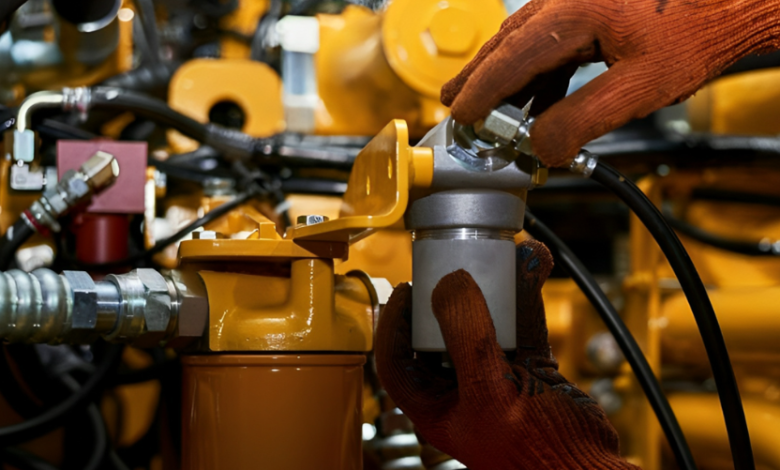Hydraulic oil purifier

Introduction
Hydraulic systems are widely used in industrial machinery, automotive applications, and heavy equipment for transmitting power through pressurized fluids. The hydraulic oil in these systems plays a crucial role in ensuring smooth operation, lubricating components, and transferring energy. However, hydraulic oil is prone to contamination by water, dirt, metal particles, and other impurities, which can severely affect system performance and durability. A hydraulic oil purifier is a specialized machine designed to remove these contaminants and restore oil quality. This article explores the working principles, types, benefits, and maintenance of hydraulic oil purifiers.
Importance of hydraulic oil purification
Contaminated hydraulic oil can lead to increased wear and tear on system components such as pumps, valves, and cylinders. Moisture causes corrosion and reduces the oil’s lubricating ability, while solid particles cause abrasion and clogging. Over time, these issues can lead to system failure, increased downtime, and expensive repairs. Using a hydraulic oil purifier ensures that the oil remains clean, which extends the life of hydraulic components and maintains optimal system performance.
Working principle of hydraulic oil purifier
Hydraulic oil purifiers typically use a combination of filtration, dehydration, and sometimes degassing to clean the oil. Key processes include:
filtration
The oil passes through fine filters that capture solid particles like dirt, rust, and metal shavings. This filtration protects the hydraulic system from abrasive damage.
dehydration
Water content in the oil is removed by vacuum dehydration. By lowering the pressure inside the purifier, water evaporates at a lower temperature and is separated from the oil.
degassing (optional)
Some purifiers also remove dissolved gases that can cause cavitation or reduce lubrication efficiency.
Together, these processes restore the hydraulic oil’s quality and ensure smooth system operation.
Types of hydraulic oil purifiers
portable purifiers
Compact and easy to move, portable purifiers are ideal for maintenance and on-site cleaning. They suit small to medium-sized hydraulic systems.
stationary purifiers
Designed for continuous use in factories or workshops, these systems handle large volumes of oil and provide thorough purification.
online purifiers
Online purifiers are integrated into hydraulic oil purifier to clean oil continuously during operation, preventing contamination buildup.
See also: Automation in Everyday Life: How Smart Technology Is Streamlining Daily Tasks
Benefits of using hydraulic oil purifiers
- extended component life: Clean oil reduces wear, preventing premature failure of pumps, valves, and cylinders.
- improved system efficiency: Purified oil ensures consistent pressure and smooth hydraulic function.
- cost savings: Extending oil life reduces the frequency and cost of oil changes.
- reduced downtime: Fewer breakdowns and repairs lead to higher productivity.
- environmental protection: Reusing oil minimizes waste disposal and pollution.
- safety enhancement: Removing water and contaminants reduces risks of system malfunction.
Maintenance tips for hydraulic oil purifiers
To maintain effective purification, regular upkeep of the purifier is essential:
- Clean or replace filters according to usage.
- Inspect vacuum pumps and compressors for proper operation.
- Monitor oil condition before and after purification to assess performance.
- Check all connections and seals for leaks.
- Train operators in safe and proper purifier handling.
Common challenges and solutions
Hydraulic oil purifiers may face challenges such as handling heavily contaminated oil, managing purification speed, and ensuring minimal downtime. Solutions include staged purification for dirty oil, investing in higher capacity purifiers, and scheduling regular maintenance.
Conclusion
Hydraulic oil purifiers are indispensable for maintaining the quality and longevity of hydraulic fluids in various industrial applications. By effectively removing moisture, solid particles, and gases, these machines help protect critical system components, improve efficiency, and reduce operational costs. Proper selection and maintenance of hydraulic oil purifiers ensure reliable system performance and contribute to sustainable industrial practices.





